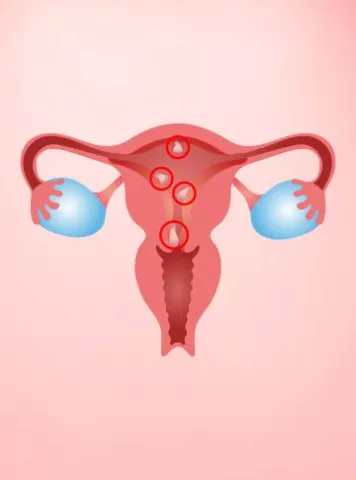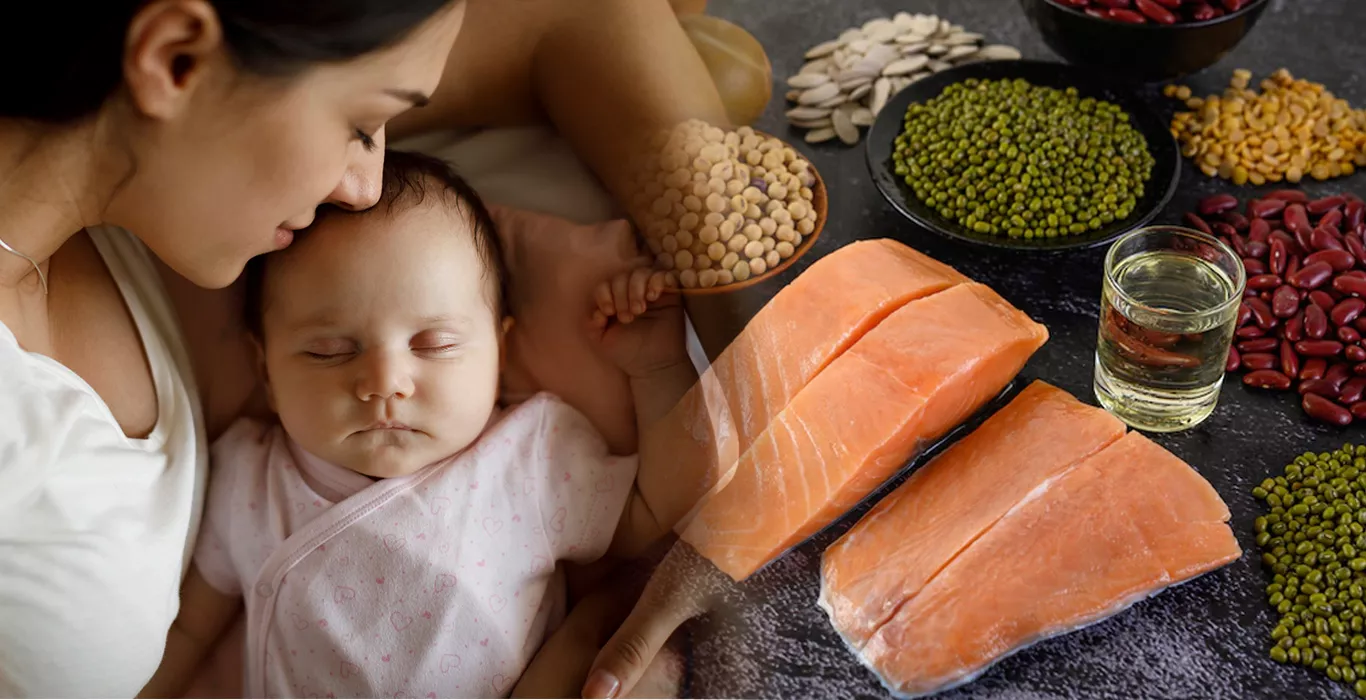Synopsis
Diet Chart for Lactating Mother: Eating healthy is essential while breastfeeding. Here's a simple and easy diet plan for lactating mothers. Read to know more.
You know breast milk is the best food for your baby, but what about your own nutrition while breastfeeding? Know from our expert doctors about the diet to adopt when breastfeeding.
There is no specific diet plan for lactating mother or food for lactating mother, but what you eat should be nutritionally balanced. It is therefore recommended to eat a lot of fruits and vegetables, whole grains such as oats, brown rice as well as whole cereals and breads. These foods along with potatoes, pasta and semolina are also rich in starch, an important source of energy.
Foods to increase breast milk:
You need the lean protein found in chicken, eggs, legumes, lentils, fish, and lean beef, as well as the healthy fats found in olive oil, fruits, nuts, seeds, avocados and oily fish such as salmon or mackerel to increase you breast milk. Oily fish are good for your health and your baby’s development, but don’t eat more than two servings per week, as they are likely to contain polluting substances and are not considered the best foods to increase breast milk.
Lactating Mother Diet Chart: Do I need to take vitamins for lactation?
Vitamin D is essential. It is essential for healthy bones, both for you and for your baby, and exposure to the sun provides us with most of it. If you live in a place with little sunlight, especially in winter, your vitamin D intake may not be enough, so supplements may be recommended.
Also, make sure you are getting enough calcium as breastfeeding reduces it. Eat four servings of dairy products per day, such as milk, yogurt, cheese, or non-dairy products, including nuts, tofu, sesame seeds, and leafy green vegetables. One serving is roughly half a cup of green vegetables or a 50 g small piece of cheese.
Diet for lactating mother: Are there certain foods that should be avoided when breastfeeding?
Good news, apart from fatty fish whose consumption should be limited, no specific food should be avoided when breastfeeding your baby. Caffeine and alcohol are also acceptable, within reason.
Unless you are allergic to peanuts, there is no reason to avoid peanut foods when you are breastfeeding. Recent research indicates that if you eat peanuts while breastfeeding and introduce them to your infant’s diet as early as their first year; they will be less likely to develop intolerance.
Foods to increase breast milk: Do I need extra calories when I breastfeed?
Breastfeeding mothers need about 500 calories more per day than non-breastfeeding mothers, but every woman is different, and your energy needs will vary over the course of your breastfeeding experience. The amount of calories required will depend on your baby’s age, size, and appetite, as well as your Body Mass Index (BMI), activity level, and factors such as how you exercise, how you breastfeed your baby (exclusive or not) or if you are breastfeeding twins or several babies.
Lactating Mother Diet Chart: Should I drink more when breastfeeding?
Breastfeeding can make you thirsty, so it’s important to stay hydrated. Usually, we need to drink six to eight glasses of fluid a day and even more when breastfeeding. Drink a glass of water, milk, or fruit juice without added sugar every time you breastfeed your baby.
I love coffee: should I avoid caffeine?
As with everything you eat or drink, caffeine passes into your breast milk, so it is advisable to limit consumption when you are breastfeeding. Ask your healthcare professional what is best for you.
Lactating Mother Diet Chart: Can I drink alcohol while breastfeeding?
Many breastfeeding mothers choose to stop drinking alcohol. However, occasional light consumption while breastfeeding has not been shown to have
so if you have a drink of alcohol, your baby may have more appetite and want to drink more.
Diet for lactating mother: If I diversify my diet, will my baby be less picky?
Your breast milk is flavoured with the foods you eat. any adverse effects on babies. Better to avoid alcohol until your baby is three months old.
Remember that alcohol can temporarily reduce your milk supply,
Therefore, if your diet while breastfeeding is varied and exposes your baby to different flavours, it is possible that he/she will enjoy these tastes later.
If you like spicy foods, there is no reason to avoid them when breastfeeding.
Lactating Mother Diet Chart: Is it possible that something that I am eating is not suitable for my baby?
Young babies are often irritable or have gas, and mothers naturally wonder if their diet is causing it. Though it is very unlikely. Research shows that the proportion of infants who are allergic to something in breast milk is just over 1%. Cow’s milk, eggs, corn or soy protein in their mother’s diet are the most common causes of allergy and not the spicy dishes, hot sauces or the different types of cabbage that cause concern.
If your baby is allergic to any component of your milk, it can cause excessive vomiting, a rash, blood in the stool, or persistent congestion. If your baby has food intolerance, you are likely to experience symptoms such as irritability, crying after a feed, reflux, explosive stools, and your baby would bring her knees up to her chest. If you think something is wrong, seek advice from a healthcare professional. Your doctor may advise you to stop a particular food for a few weeks and then reintroduce it to see if it makes a difference to your baby.
Diet for breastfeeding mother: Could vegetarianism have an impact on my breast milk?
As long as you’re getting enough calories and all the nutrients your body needs (carbohydrates, proteins, fats, vitamins, and minerals), you should be fine and there should be no special diet for breastfeeding mother but the lactating mothers who are vegetarians and vegans must ensure that they receive a significant amount of vitamin B12, vitamin D, calcium and omega 3 fatty acids. For this, they will choose foods or food supplements that allow them to refuel these essential nutrients.
If you are on a vegetarian, vegan, macrobiotic, or any other specialdiet for lactating women, seek advice from a healthcare professional to make sure you are getting all the nutrients, you and your baby need.
Comments
Articles
2023


World AIDS Vaccine Day 2023: Can HIV & AIDS affect fertility or your infant’s health?
World AIDS Vaccine Day is observed every year on the 18th of May to create awa...
2023


Male Infertility Infertility Tips
Hyperspermia: Causes, Symptoms, Diagnosis & Treatment
What is Hyperspermia? Hyperspermia is a condition where an individual produ...


Guide to infertility treatments Infertility Tips
पीआईडी: पेल्विक इनफ्लैमेटरी डिजीज और निःसंतानता
पीआईडी - पेल्विक इनफ्लैमेटरी �...
2022


Infertility Tips Uterine Fibroids
Endometrial Polyps (Uterine Polyps)
What are Endometrial Polyps (Uterine Polyps)? Endometrial polyps, often ref...
2022


Female Infertility Infertility Tips
Why do You Need Fertility Treatment
As we all know infertility rate is constantly rising in our society day by day...
2022


Cesarean Section Vs Natural Birth
Surrogacy centers in Delhi and Infertility centers in Pune state that there ar...
2022


ನಿಮಗೆ ಹುಟ್ಟಲಿರುವ ಮಗುವನ್ನು ಅರ್ಥಮಾಡಿಕೊಳ್ಳುವುದು: ಗರ್ಭದಲ್ಲಿ ಮಗು ಹೇಗೆ ಬೆಳೆಯುತ್ತದೆ!
ವೀರ್ಯವು ಮೊಟ್ಟೆಯನ್ನು ಭೇಟಿಮಾಡ�...
2022


Diet Chart for Pregnant Women: The Right Food for Moms-To-Be
Pregnancy Food Chart 1. The daily diet must include the right amount of pro...
2022


Can i become pregnant while my tubes are tied?
Pregnancy is one of the most important phases in women’s life and is conside...
2022


9 days towards 9 months
A couple after facing all odds finally come knocking the door of medicine and ...
Tools to help you plan better
Get quick understanding of your fertility cycle and accordingly make a schedule to track it















